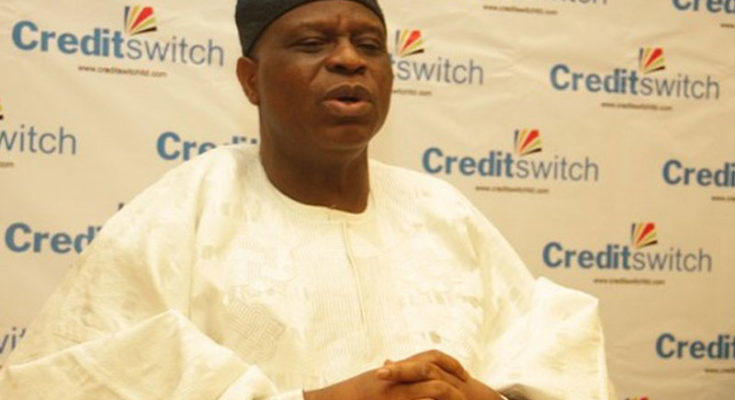A Lagos State high court in Igbosere, on Tuesday, sentenced a Togolese, Sunday Anani, to life imprisonment for the murder of the CEO of Credit Switch Ltd, Ope Bademosi, who had employed him as a cook.
Mr Anani had only been in the employ of the deceased for three days when he committed the crime on October 31, 2018, at the Ikoyi residence of the deceased.
The judge, Mobolanle Okikiolu-Ighile, sentenced the accused after he changed his initial not guilty plea to a guilty plea.
He had entered into plea bargain with the prosecution to avoid being charged with an offence that carried the death sentence.
Through the plea bargain instituted through a letter dated May 20, the prosecution changed the original charge of murder and armed robbery to one of manslaughter.
Justice Okikiolu-Ighile, while sentencing the defendant, said ” it is annoying that a young man like this would involve himself in this kind of crime.
“What did he hope to achieve in life involving himself in this kind of crime, I ask? It is very painful that a young boy whom the family of Bademosi welcomed in their home as a cook ended up causing so much havoc and endless pain.
“It is even more painful that the defendant had no motive of working but came into the house with a criminal intention to steal to kill and to destroy.
“The defendant admitted ‘I killed him.’ This was an innocent and unsuspecting family.”
She also asked if the defendant had an allocutus to make to the court before his sentence was delivered. In response, his counsel, the Director of the Office of the Public Defender (OPD), Aderenra Adeyemi, urged the court to note that the defendant was a first time offender.
“The defendant is a young man and he is remorseful about what he has done. He is a first time offender, there is no evidence that he committed any crime before this. Our humble application is to urge your lordship to grant a sentence of years certain. However, if My Lordship is mindful of upholding what we have agreed in the plea bargain, we will accept the sentence therein.”
The prosecuting counsel, Titilayo Shitta-Bey, Lagos State Director of Public Prosecutions (DPP), however, opposed the prayer.
She said the nature of the crime is one that is gradually becoming a menace in the society and the judiciary has to send a strong signal and therefore maximum sentencing should be delivered.
“We urge this court to grant the maximum sentence for the offence of voluntary manslaughter act as charged.
“The defendant was employed into the home of his boss, entrusted with a high level of responsibilities as a cook.
“Barely three days after resumption of duty, the defendant cut short the life of a man that gave him a new lease of life, depriving him the privilege of enjoying life with his wife and children, which the deceased was entitled to.
“Judicial notice must be taken of the fact that this act of violence by domestic employees against their employers is becoming rampant. The sentence must reflect that this conduct is unacceptable to our society we must send the message to others of like minds like the defendant.”
After hearing from both parties, the judge held that “Sunday Adefonou Anani, defendant in this case, is hereby sentenced to life imprisonment. The term of imprisonment shall commence from today June 25, 2019.”
It will be recalled that the defendant fled the scene of the crime and was apprehended in Imo State and subsequently brought back to Lagos where he was charged with the offences of murder and armed robbery, contrary to Sections 223 and 297 (2) (b) of the Criminal Law of Lagos State, 2015 at an Igbosere Magistrates’ Court which remanded him on November 12, 2018.
On April 10, he was charged for Mr Bademosi’s murder at the High Court where he pleaded not guilty.
During the course of the short trial, the Lagos State Government told the court that Mr Anani, last October 31 at 3B, Onikoyi Lane, Parkview Estate, Ikoyi, Lagos, unlawfully killed Mr Bademosi by stabbing him with a knife on his chest.
The prosecution also called two witnesses which included the wife of the deceased, Ebunola Bademosi, who informed the court that she found her husband already dead in a pool of his own blood.
“I entered the apartment. By the time I got in, I looked up and saw blood flowing out of my husband’s bedroom. I couldn’t enter my husband’s bedroom because the door was only partially open, but I could see his body lying on the floor. I wasn’t sure of what could be happening inside the bedroom, so, I ran out of the building and started screaming, calling neighbours to help. A couple of people came. I told them to go up and check, that something was happening, that I didn’t know what exactly it was.”
Premium Times

 News6 years ago
News6 years ago
 Featured6 years ago
Featured6 years ago
 Boss Picks6 years ago
Boss Picks6 years ago
 Headline6 years ago
Headline6 years ago
 Headline6 years ago
Headline6 years ago
 Headline5 years ago
Headline5 years ago
 Headline6 years ago
Headline6 years ago
 Headline6 years ago
Headline6 years ago














